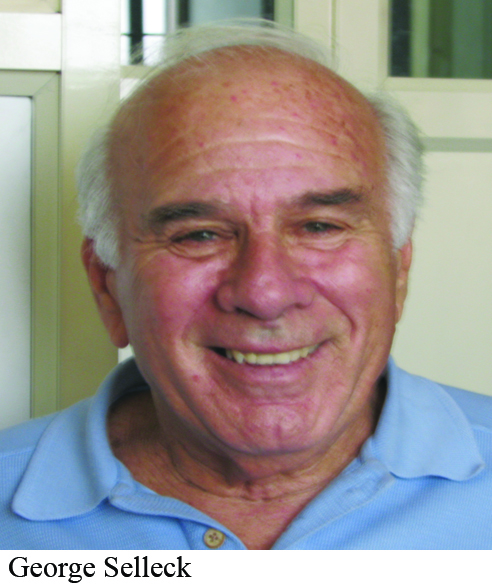Many summers ago, i had been invited to give a talk at the athletics banquet of a local school — a lecturing engagement I had frequently discharged. I remember how I resolved to go beyond my usual spiel and come up with something new — something I’d be as interested in saying as (I hoped) children would be interested in hearing.
Searching for inspiration, I took a long walk and recalled the many talks I’d heard in my playing days. It came as a shock that I failed to remember a single stand-out moment from any of them. Next I recalled the various talks I had myself given. I couldn’t remember anything particularly stellar about them, either. Ultimately my decision was to give a talk I wish someone had given me when I was a young athlete. I would speak to “young George”, and the kids at the banquet could listen in if they chose to. So here is the advice I gave myself.
"Young George, instead of focusing on scoring points and winning games, you need to focus on the journey. Of course, it’s fun to win, bag trophies and championships, and receive accolades. But trust me when I tell you that the journey towards your goal is far more enjoyable and meaningful than the actual outcome.
If you get too busy trying to win basketball games, you’re going to miss the more important point of youth sports — which is to help you develop physically, psychologically, and socially — to transform into a successful, contributing member of society. I know that doesn’t sound very exciting to you right now, but trust me, when you’re facing that first big job interview or are confronted with a huge dilemma, you’ll wish you’d paid more attention to this lesson.
George, don’t spend so much time with your eyes trained on ‘the next thing’. The focus of your sports and classroom experiences should be the here-and-now. Enjoy the moment you’re in and you’ll enjoy the moment you’re working towards that much more.
Would you like to know the trick of doing that? I hope so, because I’m about to tell you
One, you need to focus on effort over outcome. Effort is energy, enthusiasm, passion, and gives you moments of joy. It is powerful, contagious, and an essential prerequisite of a successful journey through sports and life.
Two, you need to celebrate the progress you make as you strive to master sports, classroom and social skills. Each success should make you want to try just a little bit more. That’s the formula for developing skill, self-confidence and self-esteem. There’s an old story about a farm boy who was able to lift a cow. When asked how he got to be so strong, he replied that he began lifting the animal every day from the time it was a calf. Since the cow’s growth was gradual, each day he exerted just that little extra effort. That’s how he’d become so strong. Likewise, the best way to master any skill is to break it up into little components and move from one step to the next.
Three, always remember that success in sports arenas and in life is dependent upon teamwork, unity and friendship more than anything else. Human beings are designed to be team players. A family is a team, a business is a team as is a temple/church/mosque congregation. Hospital staff are a team, a government office is a team. We are designed to function in connected, interdependent relationships with one another. When teamwork is smooth, the results are always positive.
Four — and i really hope you get this one, george— there is an important and incredible connection between sports and life. You will mature much sooner and avoid a lot of mistakes if you understand that every life lesson you need to learn can be learned on playing fields. I have spoken with hundreds, even thousands, of athletes and sportspersons over the years who’ve all confirmed that they learnt how to overcome adversity, the importance of hard work, teamwork, discipline, etc, on playing fields, often without being aware they were learning valuable life skills. Therefore, they didn’t apply these skills or knowledge to their class work, decision-making or career choices. Think how much easier things would become George, if you can apply what you are learning now on playgrounds to other areas of your life.
Finally, one last thing. Sports and life is — or should be — all about deriving fun and joy. This doesn’t mean you shouldn’t give it your best when you compete. It means being deeply involved in what you are doing. That’s the best way to derive joy. You could be playing the piano for yourself rather than an audience. But if you are totally into what you are doing, you’ll be deriving joy. Yet experiencing fun and joy is also about feeling closely connected with the others in any given activity. If a kid is left out of the group/team, ignored or rejected, you can be sure she’s not having fun, and you too, will be deriving less fun than you should be.
So, George, have fun. Don’t take sports or life too seriously — but take it seriously enough to learn from it. Live in the moment and make that moment wonderful!"
(Dr. George A. Selleck is a San Francisco-based advisor to EduSports, Bangalore)